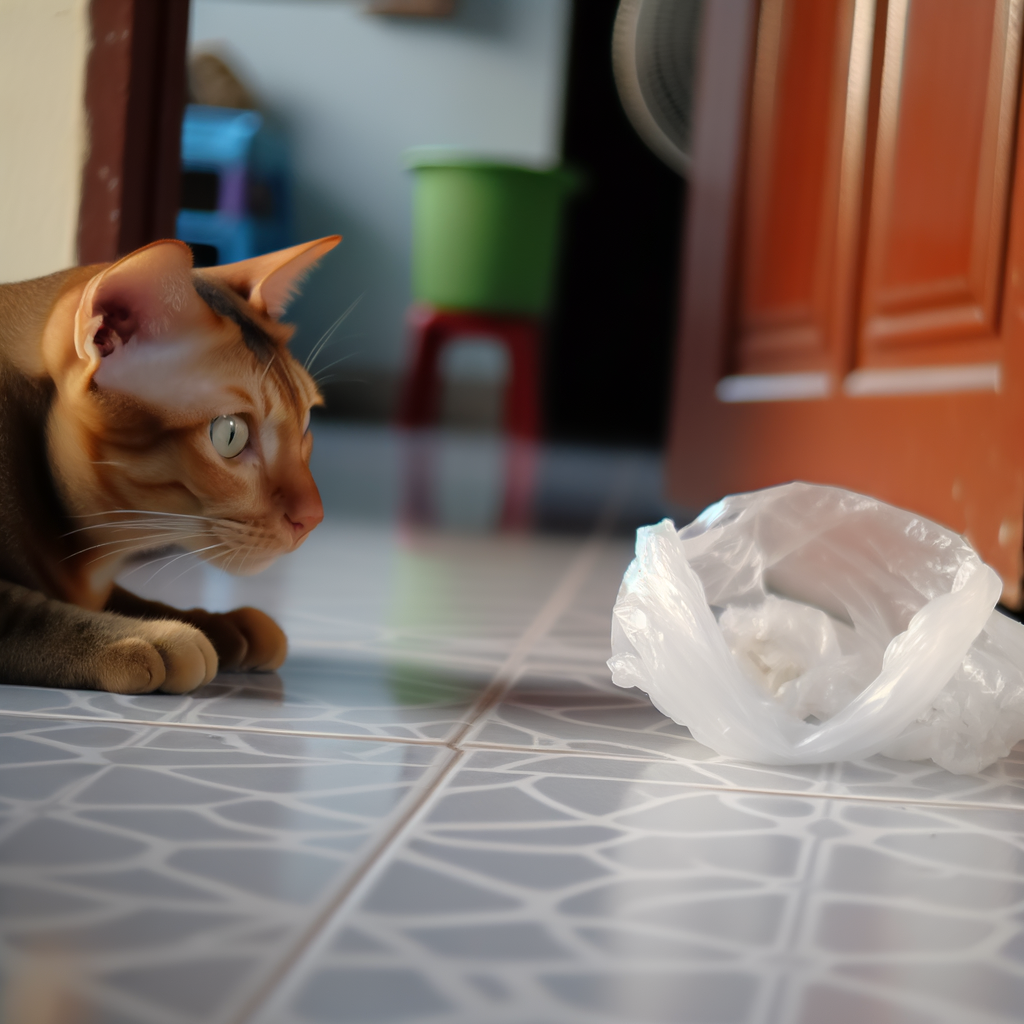Cats can be mysterious creatures, often leaving their owners puzzled by their quirky behaviors. One such oddity is their fascination with licking plastic. This habit can be both amusing and concerning for pet owners. Understanding why cats do this and how to keep them safe is crucial. Let’s explore this feline obsession, the risks involved, and some practical tips to prevent this behavior.
Why Cats Are Obsessed with Licking Plastic
Cats have a natural curiosity, and plastic is no exception. One theory is that certain plastics contain animal fats or gelatin, which can attract cats because of the smell. This can make plastic bags, wrappers, and other items seem like tasty treats to your feline friend.
Another reason could be the texture of plastic. Some cats enjoy the sensation of licking or chewing on smooth, flexible surfaces. This can provide a form of sensory enrichment and even stress relief for your pet. The act of licking itself can be soothing and may become a comforting ritual.
Lastly, boredom may play a role. Cats, especially those left alone for long periods, might develop a habit of licking plastic out of sheer boredom. This behavior could be their way of entertaining themselves when there are no toys or human interaction available.
The Risks of Plastic Licking for Cats
While it might seem harmless, licking plastic can pose real dangers to your cat. One of the biggest risks is ingestion. Cats may accidentally swallow small pieces of plastic, which can lead to choking or cause blockages in their digestive system. This can result in severe health issues and might require emergency veterinary care.
Another concern is the potential for toxic chemicals. Some plastics contain harmful substances like phthalates or BPA. These chemicals can leach out and be ingested by your cat, leading to problems like hormone disruption or other health complications over time.
Additionally, plastic items often carry bacteria or residues from food. Licking these surfaces can expose your cat to pathogens that could make them sick. Therefore, it’s important to be vigilant about your cat’s plastic-licking habits to keep them safe and healthy.
Tips to Prevent Your Cat from Licking Plastic
To keep your cat from licking plastic, try to eliminate or reduce their access to such items. Store plastic bags, wrappers, and containers in cabinets or other inaccessible places. Out of sight often means out of mind for curious cats.
Provide alternative forms of enrichment to keep your cat entertained and reduce boredom. Interactive toys, scratching posts, and puzzle feeders can be great distractions. Spend quality time playing with your cat to fulfill their need for interaction and mental stimulation.
Lastly, consider using deterrents. Spraying plastic items with a cat-safe bitter spray can make them less appealing to lick. These sprays are usually non-toxic and have a taste that cats dislike. Over time, this can help break the habit and keep your feline friend safe.
Understanding why cats lick plastic and taking steps to prevent it can ensure your pet stays happy and healthy. By providing alternatives and eliminating access to plastic, you can help curb this curious habit. Remember, a little prevention goes a long way in keeping your furry friend safe. Happy cat parenting!
